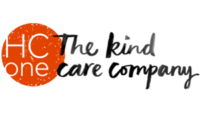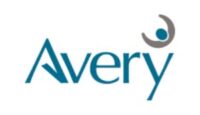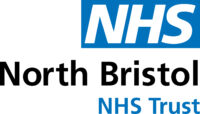How to Prevent Adverse Events in Healthcare
Tags:
Adverse events in healthcare pose serious challenges, impacting patient safety and the quality of care provided. Understanding what adverse events are, how they occur, and ways to prevent them is essential for every healthcare provider.
At Radar Healthcare, our commitment is to make reporting, analysing, and learning from these events easier and more effective for healthcare organisations. Through our Adverse Event Reporting Software, healthcare providers can take proactive steps to reduce risks and enhance safety.
"When a resident falls, the caregiver records the incident on a handheld device, which then updates Radar Healthcare. With an efficient data flow, the caregiver can also note other crucial details such as missed medications, refusal of medications, inadequate food or water intake, or potential infections. By compiling this information, we gain a comprehensive view of the person, helping us understand the cause of the fall. This integrated data approach enhances our ability to provide effective care and is the driving force in what we are wanting to achieve."

What is an Adverse Event?
To prevent adverse events, it’s crucial first to define them. An adverse event in healthcare refers to an incident that results in harm to a patient. This can include medication errors, misdiagnoses, falls, and infections acquired in healthcare settings.
Adverse events differ from near misses, which are situations where potential harm was avoided before reaching the patient. While both must be addressed, an adverse event directly impacts patient safety and well-being.
Understanding adverse event meaning and its implications helps healthcare organisations implement strategies to avoid them and strengthen their culture of safety.
Why is Adverse Event Reporting Important?
Accurate and timely adverse event reporting is essential for identifying the causes of such events and taking steps to prevent future occurrences. This process provides critical insights into patterns, helping healthcare teams understand how and where these incidents happen.
Effective adverse event reporting software, like Radar Healthcare’s solution, simplifies this process by centralising data collection, categorising incidents, and facilitating data-driven decision-making.
Benefits of Event Reporting
🔒 Enhanced Patient Safety: Reporting and analysing adverse events leads to improved practices and preventative measures, directly benefiting patients.
✅ Increased Accountability: Transparency in reporting encourages a culture of accountability within healthcare organisations.
📊 Data-Driven Insights: Adverse event software provides actionable data to identify root causes and trends.
How to Avoid Adverse Events in Care
Preventing adverse events requires a combination of vigilant monitoring, staff training, and the use of advanced technology. Below are some key strategies:
📝 Implementing Standard Protocols: Standardised procedures for medication administration, patient handling, and other routine tasks reduce the likelihood of errors.
🤝 Encouraging a Culture of Reporting: Healthcare workers should feel empowered to report adverse events and near misses without fear of blame or retribution. This leads to continuous improvement. Our software facilitates the NHS Freedom to Speak Up initiative.
💻 Using Event Reporting Software: Our software helps organisations identify vulnerabilities in care processes, track incidents, and make informed decisions on improving patient safety.
🎓 Regular Training and Education: Training staff on adverse event meaning and prevention methods helps ensure consistent practices across all levels of care.
📈 Monitoring and Analysing Data: Leveraging data collected from adverse event reporting software enables healthcare organisations to track patterns and address the root causes of incidents.
The Role of Technology in Preventing Adverse Events
Technology plays a vital role in reducing the frequency and impact of adverse events. Our Events Module offers healthcare providers tools for real-time reporting, data analysis, and proactive risk management.
With features designed to address questions around “how should adverse events and near misses be reported,” our solution ensures that incidents are captured accurately and swiftly, reducing the chances of recurrence.
"Oversight and control are key for us, and so having that view of our home is brilliant. We are finding that our Events modules are prompting staff – ‘have you updated the care plan?’, ‘Have you reviewed the risk assessment’. Questions and ideas are being raised when we report and analyse events already, seven weeks in!"

How Radar Healthcare Supports Adverse Event Prevention
At Radar Healthcare, we understand that managing adverse events in healthcare is about more than just regulatory compliance—it’s about creating a safer, more transparent healthcare environment. Our software not only facilitates adverse event reporting but also:
📂 Centralises Incident Data: Collecting all incident reports in one location allows for a streamlined analysis process and better data accessibility.
🛠️ Enables Customisable Reporting: Different healthcare providers face unique challenges. Our software allows organisations to tailor reporting to meet their specific needs, whether understanding what an adverse event is or focusing on events unique to their facility.
🔍 Promotes Proactive Risk Management: By identifying trends in adverse events, healthcare providers can proactively address vulnerabilities and prevent future incidents.
"We are data rich, but I think it's fair to say we’re intelligence poor, what Radar Healthcare will enable us to do is to bring all of the aspects of patient care, incidents, complaints and a whole responsive framework together so we can see everything in one place."

Conclusion
Preventing adverse events in healthcare is a collective responsibility that requires robust systems, empowered staff, and a commitment to continuous improvement. Radar Healthcare’s Risk, Quality and Compliance Software is designed to support healthcare providers in achieving these goals, helping to build safer environments for patients and peace of mind for caregivers.
Investing in effective event reporting software not only enhances patient safety but also fosters a culture of transparency and accountability. With Radar Healthcare, healthcare providers can take concrete steps toward reducing risks, preventing harm, and ensuring the highest standards of care for every patient.
Book a free demo






